Meet the team
The Collaborative Robotics Lab (CRL) at the University of Canberra is powered by a diverse and talented team of experts. Our interdisciplinary approach brings together innovative thinkers from Engineering, Psychology, Artificial Intelligence, Health, Arts, and Design. This unique blend of expertise enables us to tackle complex challenges in robotics from multiple perspectives, fostering creativity and driving breakthrough solutions. Together, we're shaping the future of human-robot interaction and creating intelligent machines that make a positive impact on society.
Staff Members
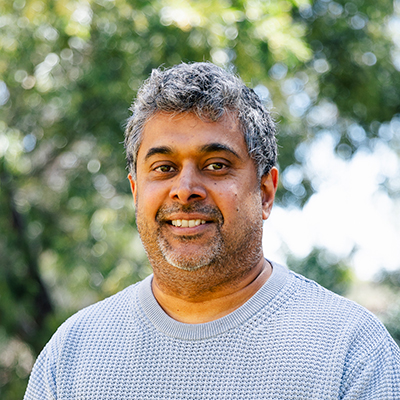
Damith Herath
Founder/Lead Collaborative Robotics Lab
Professor Damith Herath is the Founder and leader of the Collaborative Robotics Lab (CRL). His work focuses on exploring how robots and humans can collaborate, with an emphasis on the intersection of engineering, psychology, and the arts. His interdisciplinary approach actively seeks insights across diverse fields, promoting innovation and collaboration that transcends traditional disciplinary boundaries.
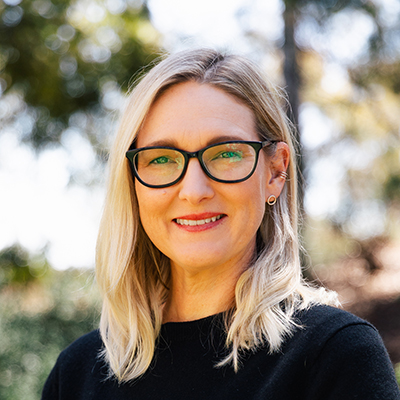
Janie Busby Grant
Psychology Research Lead
Associate Professor Janie Busby Grant is the Psychology Research Lead at CRL, where her work integrates human-robot interaction and artificial intelligence with a foundation in cognitive psychology and research design. With a strong emphasis on practical applications, Janie brings a reconciliatory approach to interdisciplinary research, particularly in exploring factors influencing human perception of, and engagement with robotic systems.
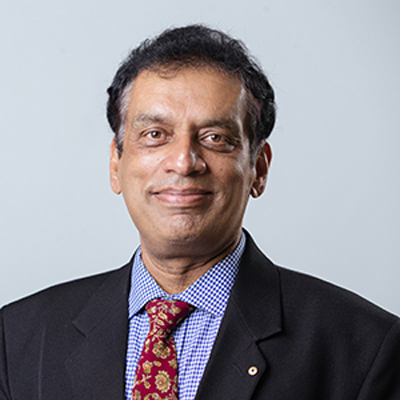
Dharmendra Sharma
AI & Robotics Capability Lead
Professor Dharmendra Sharma AM PhD, FACS, FSPCS, SMIEEE, CompIEAust, GAICD is a distinguished academic and researcher in Computer Science and Artificial Intelligence, with over 45 years of experience. He currently leads the AI & Robotics Capability at UC. His research focuses on AI, distributed AI and multi-agent systems, machine learning, with applications in health, education, cybersecurity, and more.
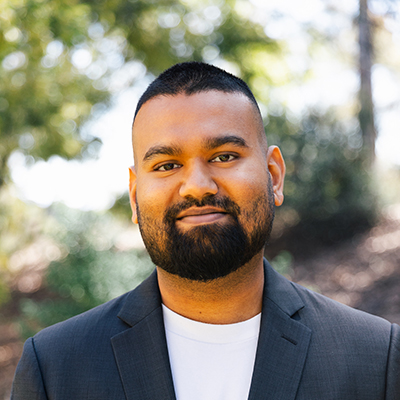
Maleen Jayasuriya
Staff
Maleen Jayasuriya is a Lecturer in Robotics at the University of Canberra’s Faculty of Science and Engineering with a research focus on human-robot interaction and explainable AI (XAI) in robotics. Maleen holds a Bachelor’s degree in Electrical and Electronic Engineering from Sri Lanka and a PhD from the University of Technology Sydney, where his research focused on robot perception, localisation, and deep learning. He later completed a postdoctoral fellowship at UTS, contributing to research on collaborative robotics for sustainable construction.
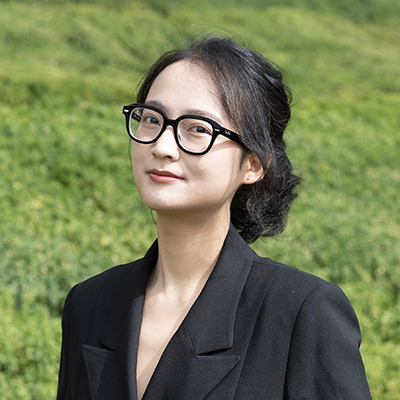
Min Wang
Staff
Dr. Min Wang is a Lecturer in AI at University of Canberra and an Adjunct Lecturer at University of New South Wales (UNSW). She is a researcher in Computational Intelligence and Privacy and Security, with nine years of research experience in these fields. She holds a PhD in Computer Science from UNSW, and worked as a postdoctoral research fellow at UNSW before joining UC, contributing to several projects in human-machine interaction, biometric security, and information management.
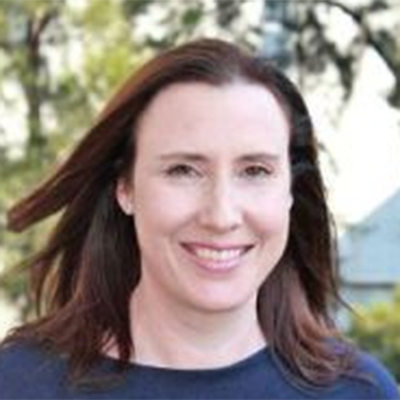
Dimity Crisp
Staff
Dimity is a Senior Lecturer in the Discipline of Psychology, Faculty of Health, at the University of Canberra. She is the Course Convener for the Bachelor of Science in Psychology (Honours) program. Dr Crisp also has extensive experience as a Research Trial Manager having coordinated large scale randomised controlled trials in different areas of community mental health. Her current research focuses on mental health and wellbeing in emerging adulthood.
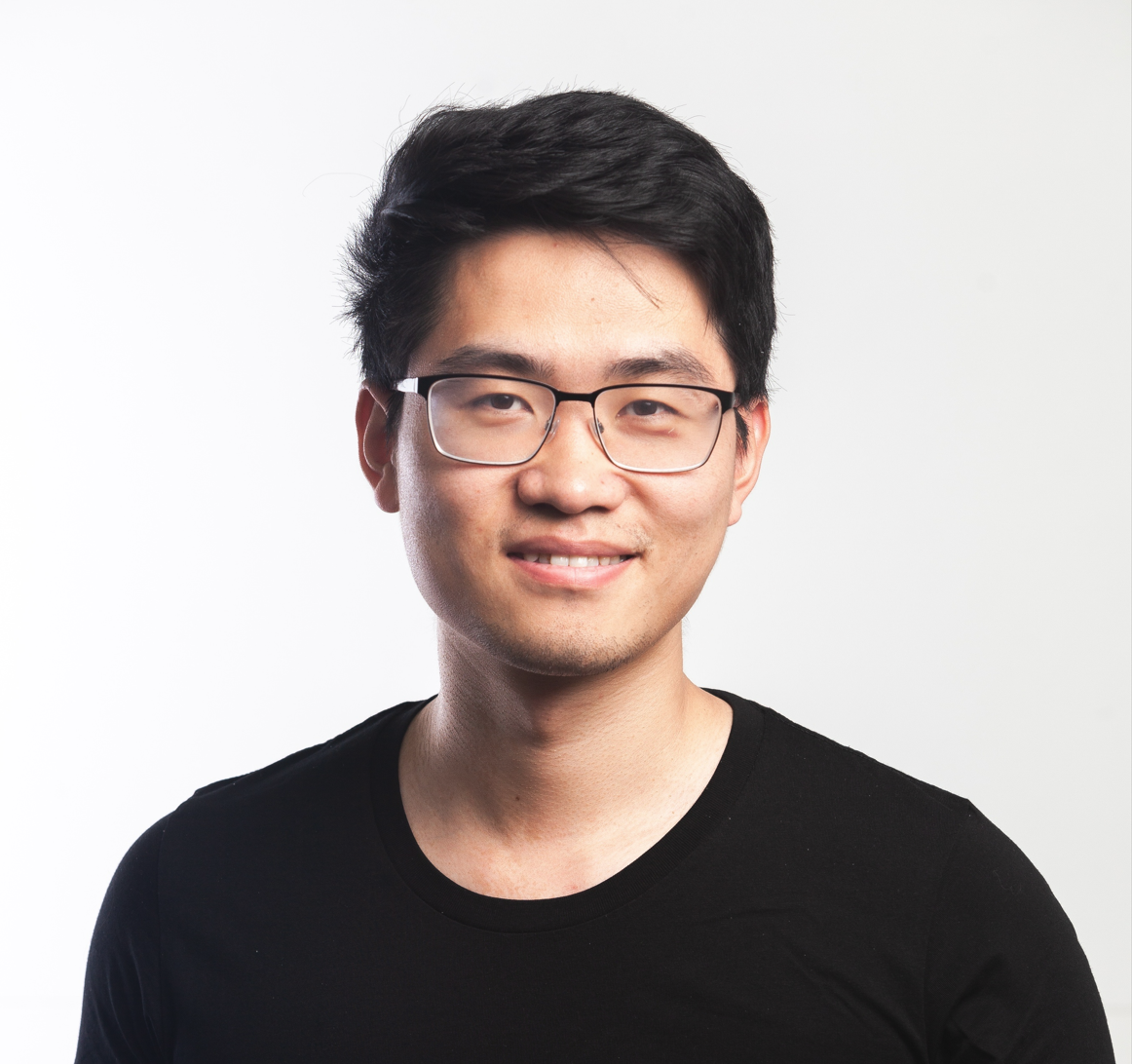
Xing Wang
Staff
Dr Xing Wang is currently a Lecturer in Robotics Engineering at the University of Canberra, where his research focuses on agricultural robotics, soft robotics, and the integration of robotic manipulation with machine learning-based perception systems.
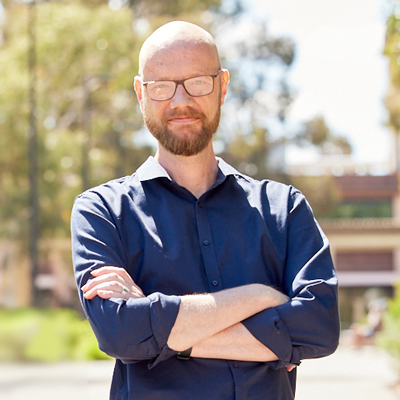
Jason Weber
Staff
Our long-servering IT Manager who played a key role in taking our robotics activities from a discarded old tutorial room to the Lab we have today. His background is that of infrastructure concentrating on our servers, networks, and workstations.
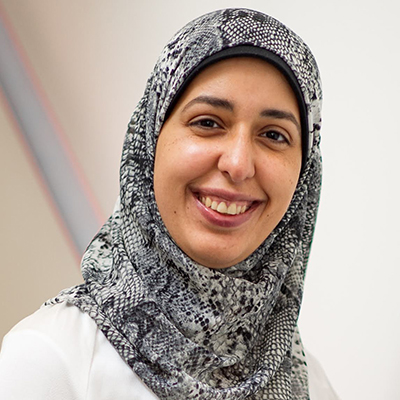
Aya Hussein
Staff
Dr. Aya Hussein is a Lecturer in AI and Machine Learning at the University of Canberra. She is an Associate Editor for IEEE Transactions on AI, a member of the GenAI TaskForce at the University of Canberra, an organiser of a few research events at flagship conferences on AI and robotics, and a reviewer for 20 journals and conferences.
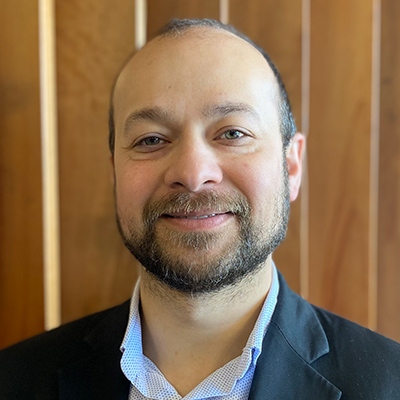
Carlos Kuhn
Staff
Carlos Kuhn is a distinguished physicist and researcher with a profound expertise in Generative AI and Cognitive AI. He holds a Bachelor’s in Physics, a Master’s in Physics, and a PhD in Theoretical Quantum Physics from the Universidade Federal do Rio Grande do Sul (UFRGS), Brazil. His doctoral research on the Exactly Solvable Model for Hetero-Triatomic Molecular Bose-Einstein Condensate highlighted his exceptional skills in complex mathematical modelling.
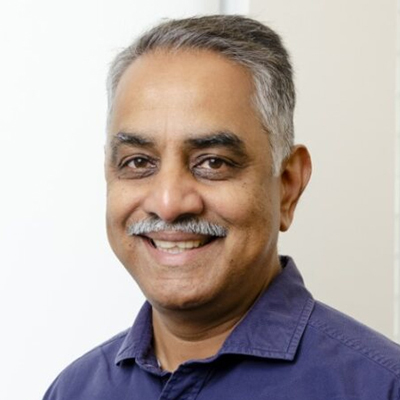
Gudur Raghavendra Reddy
Staff
Gudur Raghavendra Reddy (Raghu) is a senior lecturer and course leader for the Bachelor of Interaction Design at the University of Canberra’s School of Design. He holds a PhD in Design from Queensland University of Technology, a master’s in visual communication from IIT Bombay, and a 5-year diploma in fine arts. Raghu’s research revolves around making digital products and services more accessible for older adults and people with diverse needs, focusing on technologies that help people age in place with dignity.
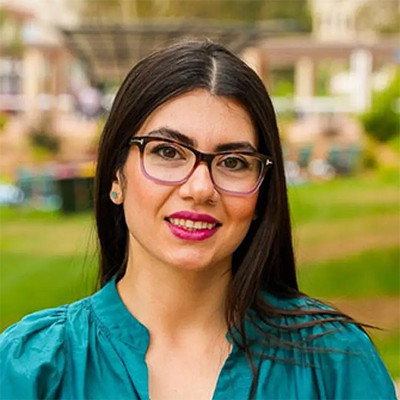
Maryam Ghahramani
Staff
Maryam Ghahramani received her BSc degree in electrical engineering at Shiraz University, Shiraz, Iran. She did her PhD in the field of “Biometric Gait, Motion, and Risk of Fall Analysis in Older People” at University of Wollongong, Wollongong, Australia. She is a lecturer at the faculty of Science &Technology, University of Canberra, Canberra, Australia. Her research interest is in the field of human motion analysis using machine learning for rehabilitation purposes.
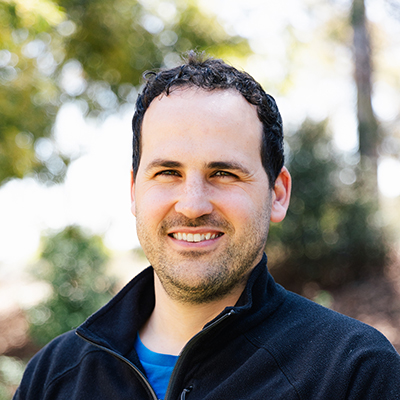
Michael Pritchard
Staff
Michael is an experienced robotics engineer and lab manager for the Collaborative Robotics Lab with a track record in designing, integrating, and deploying award-winning and innovative vision and data acquisition systems across robotic platforms and sensor networks in agriculture. His expertise extends to embedded design, remote sensor networks, robotics, automation, and control. He has a strong understanding of engineering principles and a deep knowledge of robotics technologies, enabling him to provide exceptional support to both researchers and students.
Research Students
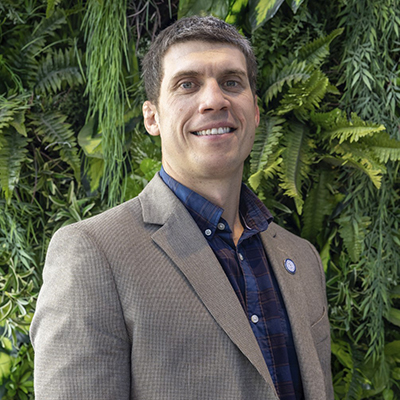
Adam Haskard
Research Student
Mr. Adam Haskard is a PhD candidate at the Collaborative Robotics Lab, University of Canberra, and co-founder of Bluerydge Cybersecurity and Technology. His research focuses on the intersection of cybersecurity and autonomous systems, aiming to develop robust frameworks that enhance the safety, security, and trustworthiness of robotic systems in real-world environments. He is a previous Graduate of the University of Canberra after completing a Master of Information Technology and Systems in Cybersecurity with a GPA of 6.

Aurora An-Lin Hu
Research Student
Aurora is a PhD candidate at the Collaborative Robotics Lab with a background in psychology and criminology. She has experience in VR-assisted experiments, public health-oriented research, and forensic psychology studies. Her PhD focuses on Human-Robot Interaction, with an emphasis on the expectation gap and its role in shaping user trust and robot adoption.
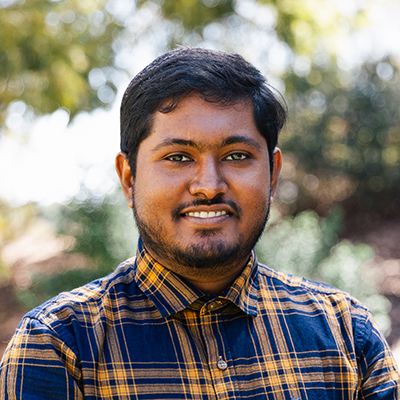
Buddhi Gamage
Research Student
Buddhi is a PhD. student at the Faculty of Science and Technology University of Canberra. Hailing from Sri Lanka with a background in computer science. Buddhi’s research interests have evolved to encompass the dynamic field of cognitive robotics. With a keen interest in exploring how robots can interact effectively with humans, he is delving into areas such as Natural Language Processing and Human-Robot Interaction
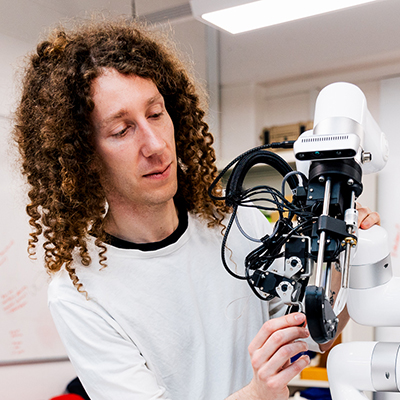
David Hinwood
Research Student
Dr David Hinwood is an award-winning multidisciplinary researcher specialising in robot design, human-robot interaction, and machine-learning applications. He is the first PhD graduate from the University of Canberra’s Collaborative Robotics Lab with seven years of development experience in research and robotics deployments. Areas of technical experience include ROS development (C++/Python), motion planning, and data-driven techniques for perception and control.
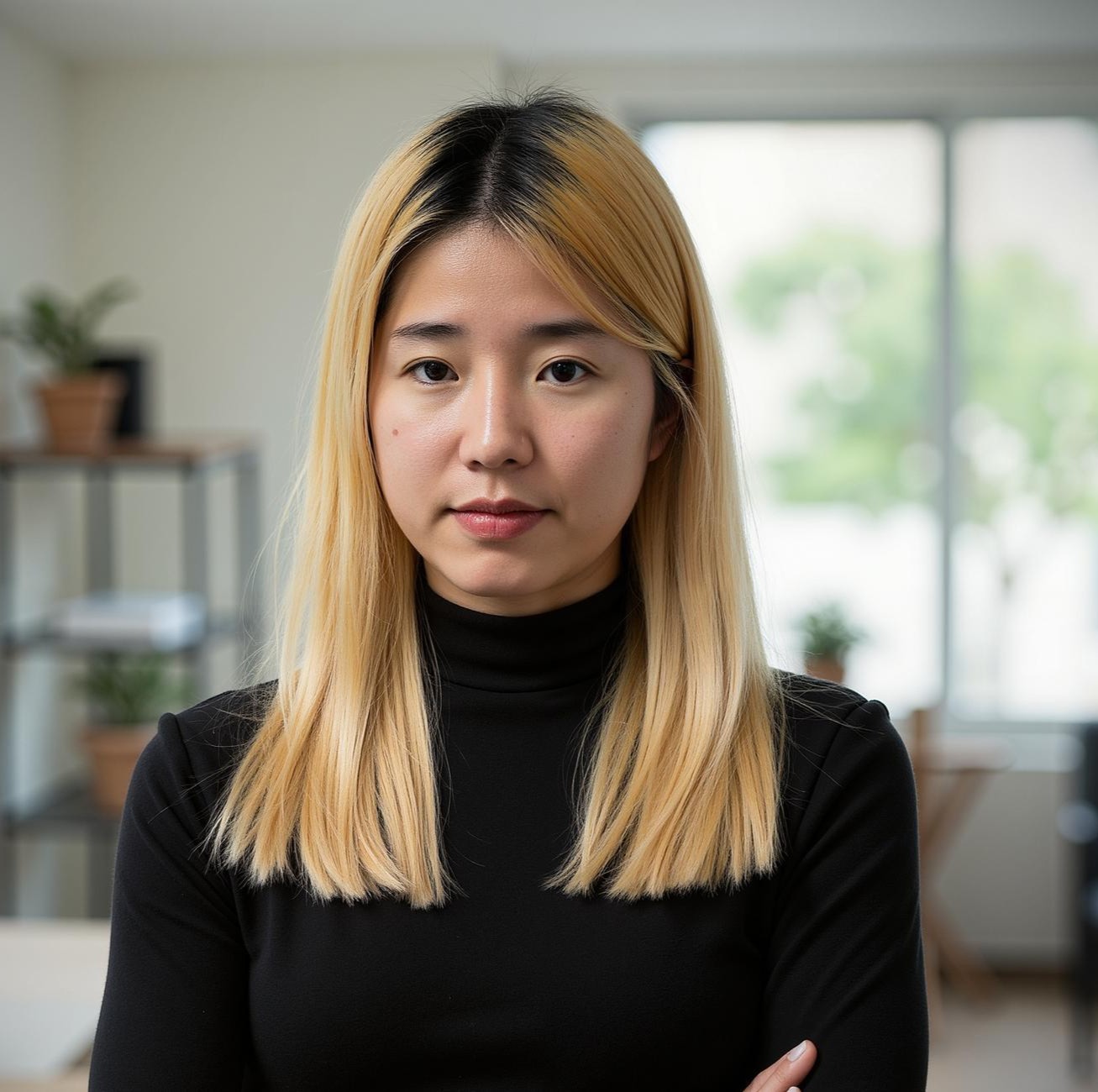
Elane Peng
Research Student
Elane Peng is a postgraduate student focused on the computational optimization of soft robotics. Her interests lie in the design and refinement of Fin Ray gripper structures using simulation-driven methods and performance-oriented strategies. With prior research experience in human-robot interaction (HRI), she is passionate about integrating robotics and intelligent systems to develop practical, efficient robotic solutions.
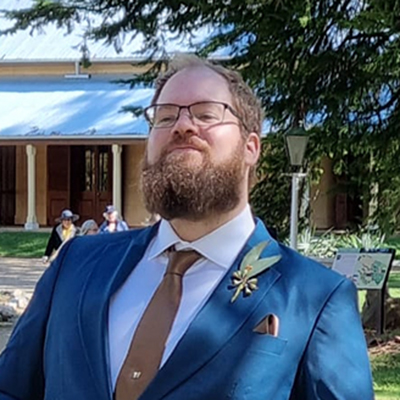
James Ireland
Research Student
Mr. James Ireland is a PhD candidate researching the fields of Computer Vision, Computer Graphics, along with Artificial Intelligence, specifically focusing on Small Object Instance Counting, Synthetic Data Generation, Multiple View Geometry and Domain Adaptation. He is a previous graduate of the University of Canberra, awarded Honours in 2017 after completing a Bachelor of Software Engineering with a GPA of 6.7.
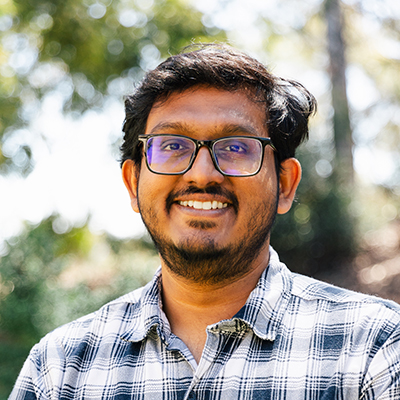
Kalana Ratnayake
Research Student
Kalana is a PhD candidate at the Faculty of the Science and Technology, Univarsity of Canberra. He has a background in Computer Science and Engineering. His research interests include robotic navigation, robotic exploration and human robot interaction. His current research focuses on improving social aware navigation capabilities of social robots that are intended for human spaces. His areas of technical experience include ROS1 and ROS2 development (C++/Python), motion planning, and low level control of robots.
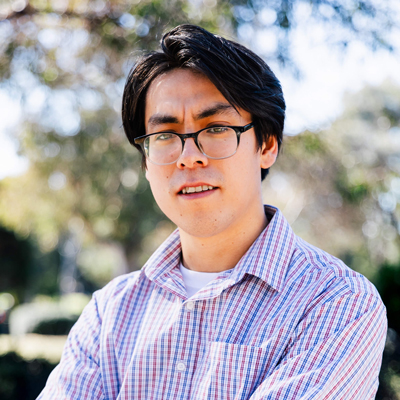
Matthew Vestal
Research Student
Matthew Vestal is a PhD candidate at the University of Canberra robotics lab. His research interests include using computer vision and AI to address climate and environmental issues, with research experience in computer vision and also oceanography. His current research incorporates multimodal imaging systems to detect contaminants like plastic in industrial scale food waste.
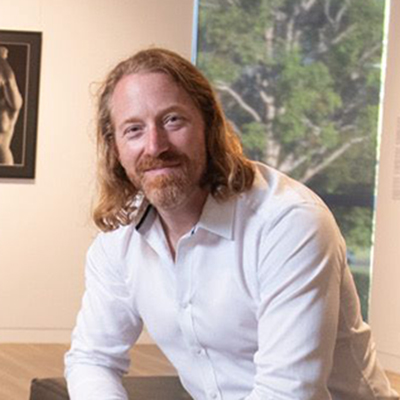
Michael Armstrong
Research Student
Michael Armstrong is a figurative artist and photographer focused on conveying deep emotional expression through his work. His art explores themes such as love, loss, shame, and hope, often drawing from personal experiences, literature, and psychological symbolism. With a strong social conscience, Armstrong’s work engages with humanitarian issues, portraying the emotional depth of the human condition.

Moniesha Thilakarathna
Research Student
Moniesha Thilakarathna is a PhD candidate at the Collaborative Robotics Lab, University of Canberra, with a background in Mechatronic Engineering. Her research interests include Mechatronic System Design, Multi-modal Grasping Techniques, and Imitation Learning. Currently, she is focused on developing a multi-modal robotic grasping technique to classify inorganic materials found within organic waste.
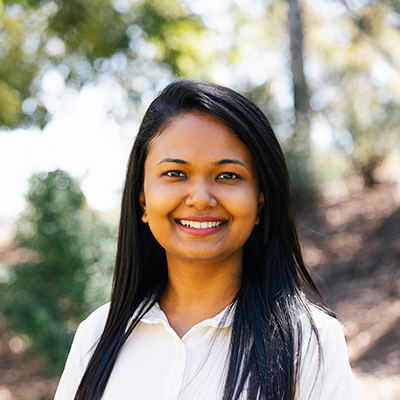
Nipuni Wijesinghe
Research Student
Nipuni Wijesinghe is a PhD student in the Faculty of Science and Technology at the University of Canberra, with a background in computer science. My research interests are centred around the fields of embodied AI, social presence, and the modulating presence of embodied systems. Through my work, I aim to explore and enhance the interactions between humans and robotic systems, particularly in healthcare settings.
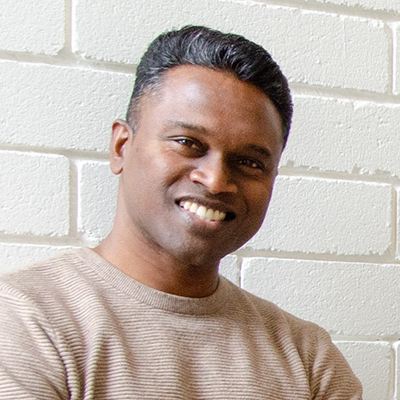
Ravi Varman Selvakumaran
Research Student
As a qualified Remote Pilot with a CASA license, Ravi is working on autonomous drone systems and their social implications. Currently, Ravi explores the enhancement of drone embodiment to improve human interaction while aspiring to pursue a PhD in this field.
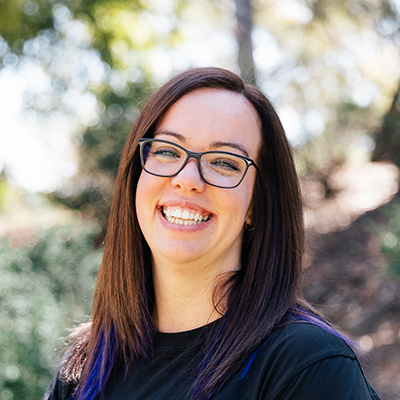
Sharni Konrad
Research Student
Sharni is a PhD candidate in the Discipline of Psychology, Faculty of Health, University of Canberra. Her primary research focus is on examining HRI, with a primary focus on the embodiment and physical design, interaction, contextual, and psychological variables that affect how humans represent and interact with the robotic systems they encounter. In addition to completing a Bachelor of Science in Psychology (Hons), she has HRI-specific research experience conducting both in-person laboratory and real-world evaluations of HRI in social and healthcare contexts.
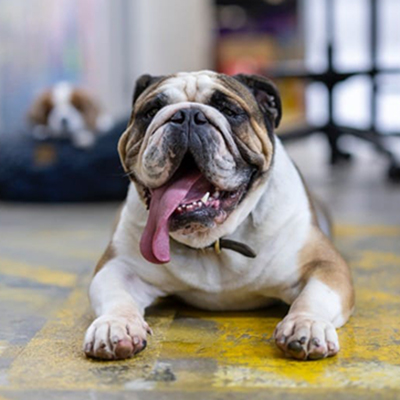
Squish
Research Student
Squish is a four-year old English bulldog and not your average house pet. Squish, as a licensed Service Animal, has flown and travelled all over Australia, and been a guest to numerous events including every major Australian gallery, Parliament House, Government House, and even the first bulldog to attend an opera at the Sydney Opera House. He has been Mike’s constant companion since he was 12 weeks old, and in addition to assisting Mike when he’s out and about, he welcomes everyone to Mike’s studio and UC Robotics Lab, bringing smiles and ease everywhere he goes. When not working, Squish loves water sports, belly rubs and snoring through yoga classes.
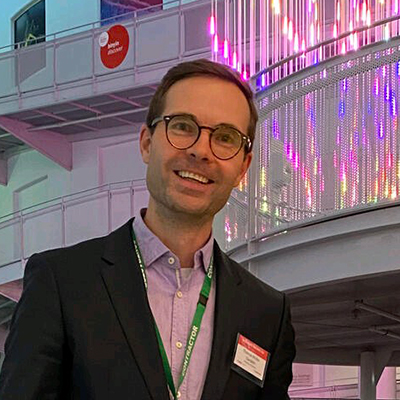
Tom Müller-Dardelin
Research Student
Tom is a MRes student at the University of Canberra and currently located at Waseda University (Japan, Tokyo), where he work as a Research Fellow. His study aims to investigate the role of socially assistive robots and how this technology can support medical staff and caregivers

